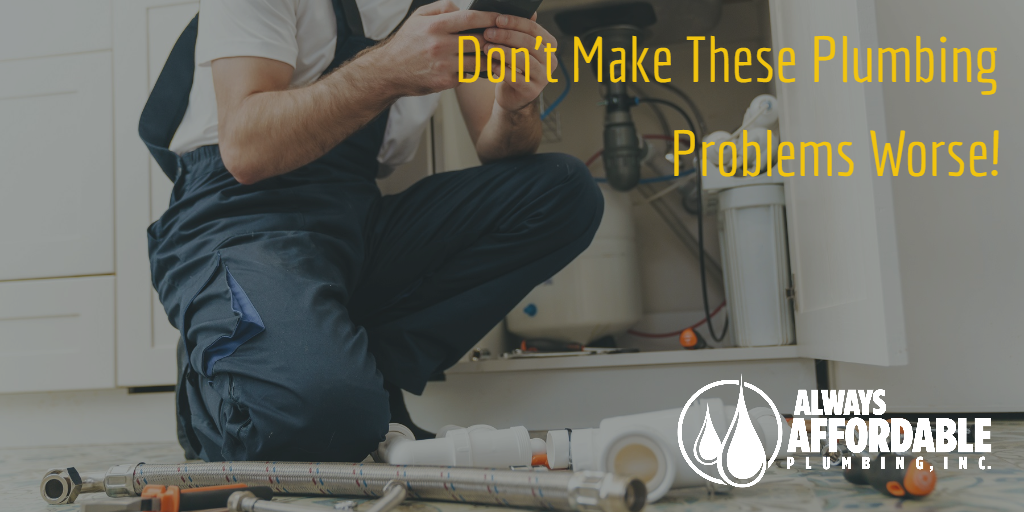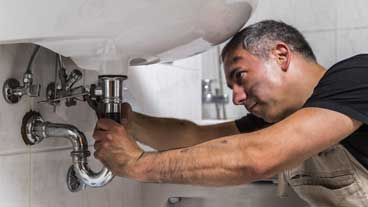All Categories
Featured
[/image][=video]
[/video]
Nonetheless, before you hurry to call a plumbing professional or make some negative do it yourself option, you could want to take an appearance at these plumbing keys that can save you time and cash. It's essential to recognize where you water shut down shutoff remains in your home, as this can conserve you from even more significant damage when plumbing concerns take place.
When everything is turned off, take a look at your water meter. If the meter remains to move, it's most likely that you have a leakage someplace in your system. This technique won't inform you where the leakage stems, but it's a great initial step towards identifying a problem. A continued motion on your water meter when all water resources are shut off is a clear warning that needs instant focus.
However, slow-moving drains are often an early indication of a larger problem. It can show a blockage in the production, a problem with your sewer line, or even tree roots infiltrating your pipelines. As opposed to waiting on the drain to end up being entirely obstructed, take activity as quickly as you discover a stagnation.

If these don't work, it may be time to contact an expert. Ignoring the concern can bring about a lot more significant and expensive problems down the line. Understanding where your major water shutoff valve is can save you from possible water damage in instance of a major leakage or plumbing catastrophe.
Should I Do My Own Plumbing?
Make sure every family adult knows where the shutoff valve is and exactly how to utilize it. In case of a major leak, promptly switching off your home's water can decrease damages and offer you comfort while you wait for a plumbing to get here. It's a preferred concept that chemical drainpipe cleansers are the utmost remedy for blocked drains pipes a notion that could not be even more from the fact.
The chemicals can wear away the inner lining of the pipelines, leading to damaged frameworks, leaks, and even pipe ruptureds. They can leak right into groundwater and infect it, presenting dangers to neighborhood communities.
These tools can efficiently clear blockages without triggering any damage to your pipelines. If these approaches don't work, do not wait to call an expert. Remember that avoidance is always far better than treatment. Prevent putting oil, oil, or any type of strong waste down your drains, as they can solidify and cause blockages.

Over-tightening can lead to many troubles, consisting of removed screws and broken bolts, resulting in leakages or even water damages. This common mistake in DIY plumbing tasks can turn a minor repair service right into a costly endeavor.
Is Diy Plumbing Safe?
Plumbing professional's tape, or Teflon or string seal tape, is an essential tool for every house owner. It develops water tight seals at pipe threads, preventing leakages at joints and connections.

Before connecting any installations, take a minute to cover a couple of layers of plumbing's tape around the threads in a clockwise instructions. See to it the tape covers all the strings and is covered securely. This basic yet essential action can conserve you from managing irritating leaks down the line.
Keep in mind that for larger issues, professional help is always advised. To stop this from occurring, take into consideration installing pipeline insulation.
And also, during chillier months, pipe insulation can aid stop your pipelines from cold and rupturing a scenario that can result in pricey repair services. When it involves sealing components like taps, lots of do it yourself enthusiasts intuitively get to for a plumbing technician's putty. There's an alternative that might serve you better silicone caulk.
Is Diy Plumbing Safe?
This adaptability allows it to accommodate slight shifts or movements without damaging the seal, supplying a more sturdy and lasting remedy. Simply keep in mind to let the caulk remedy completely according to the manufacturer's instructions before revealing it to water to guarantee the most effective outcomes. "Doping" in plumbing describes applying pipe dope, or pipe joint substance, to the strings of pipes connections prior to they're screwed together.
Latest Posts
Not known Factual Statements About Identity Protection Tools
The Ultimate Guide To Identity Protection Tools
24/7 Plumber nearby ,